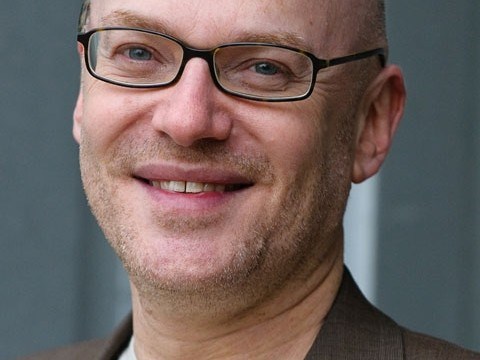WHO: Stand Up for Mental Illness
WHERE: Rainbow Theatre
WHEN: Wednesday, Nov. 16, 6 p.m.
Like Chris Rock once said, "Comedy is the blues for people who can't sing."
David Granirer has taken that sentiment to heart. For the last eight years, Granirer, a mental health counsellor, author and stand-up comic, has been running Stand Up for Mental Health (SMH), a Vancouver-based program where people living with mental illnesses are taught stand-up comedy as a form of therapy.
"It's a great way of building confidence," Granirer says, "but it's also a way of fighting public stigma."
The role of the modern-day comic is to make light of society's foibles and sway people's perceptions about them, and themselves in the process. Granirer and his SMH comics are using the craft to tackle mental health - both in challenging society's perceptions of mental illness and also in making light of the individual's own foibles.
"(We're) taking our own foibles and our own difficult times and turning them into something funny," Granirer says during a phone interview from Oregon.
His work has taken him all over North America. He's just finished training a group in Oregon that went on to perform in front of a live audience. Two weeks ago, he was doing a workshop at a mental health conference in California and in a couple of weeks he'll be working in Halifax.
On Wednesday, SMH will perform in Whistler as part of the Whistler Community Service Society's Welcome Week.
Granirer was diagnosed with clinical depression in his early 30s. While teaching a stand-up comedy class at Langara College in Vancouver (a post he still holds), he'd notice people coming through who would have life changing experiences as a result of the experience of doing stand-up.
"I thought, wouldn't it be a great idea to use this in a situation where people not only want to do comedy, but also want the therapeutic aspect," he says, noting that there's therapeutic value in finding humour in painful situations and then using that ammunition to make people laugh.
Since founding SMH in 2004, the CBC's Passionate Eye has made a documentary about the program, which won a U.S. Government VOICE Award in 2008. In 2010, SMH received a $50,000 sponsorship from Canada Post. That same year, SMH developed a class for sex workers with mental illness in partnership with Prostitution Alternatives & Education (PACE). Since 2009, Granirer has headlined shows on campuses across the continent.
Granirer is also the author of The Happy Neurotic, which received some traction in the press for its criticism of self-help culture - he was quite public about his disdain for The Secret in particular - and argues that one's neurosis should be embraced rather than hidden.
He believes that people can be happy and productive while remaining neurotic and, well, what we traditionally view as "dysfunctional."
"There are no easy answers but people like to think that there are easy answers, so that's why people gravitate towards books like The Secret ," he says. "It all just sounds so easy. We all want to find an easy way out of things and an easy way to function, an easy way to lose weight, so when someone gives it to us, we all bite on it."
Which is where SMH comes in. It doesn't provide an easy route to mental health but it's a considerably more pleasant method to identifying personal problems and making light of them.
"There's something empowering about going up on stage and being able to talk about this condition that you've had all your life that you're not supposed to talk about, and having people laugh and applaud and tell you how much they enjoyed what you had to say," he says.
"People come to our shows and see people with labels like bi-polar or schizophrenia. They see them up on stage and they're being funny, creative and engaging and people go, 'Oh wow, I didn't know they could do that.'"
Admission for the show is $3.




